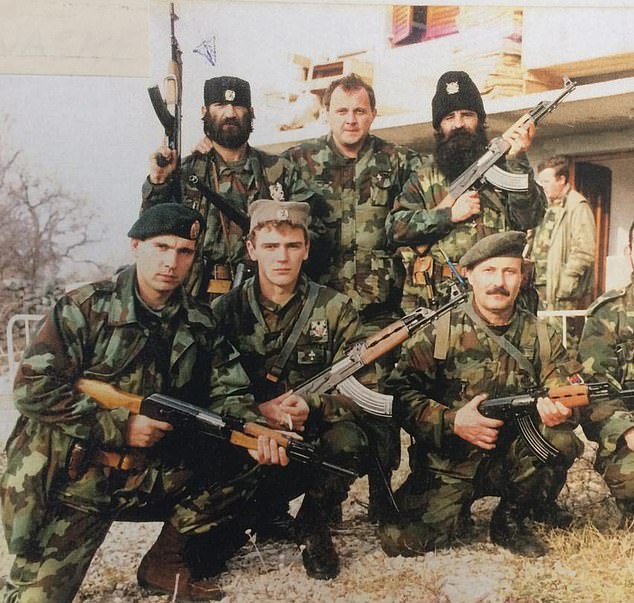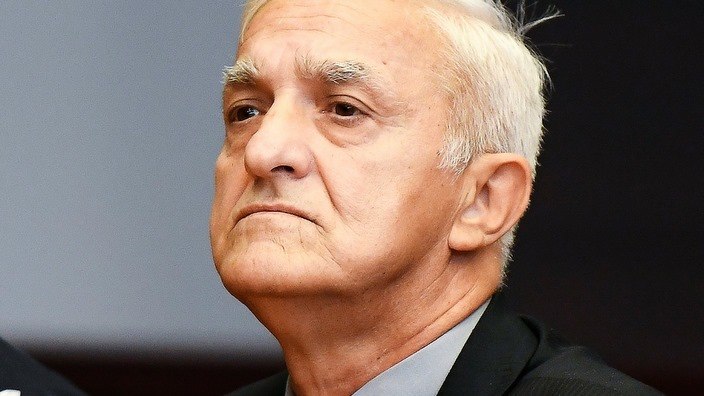59-year-old Zoran Tadic is believed to have been living an ordinary life in Australia for more than 25 years, raising a family in the suburbs of Sydney and becoming an Australian citizen.
But that could be about to come to an end.
The Special War Crimes Investigations Unit in Croatia last month laid charges of crimes against humanity under the Geneva Conventions against Mr Tadic in absentia.
“The accused is wanted for war crimes committed in the area of Škabrnja, Croatia on November 18, 1991, where 30 innocent civilians and 13 local defenders lost their lives,” a spokesperson for the Croatian Embassy in Canberra told SBS News in a statement.
“The Republic of Croatia remains unequivocally committed to bringing the perpetrators of all war crimes on our territory to justice,” the spokesperson added.
Croatian-Australian academic Ludka Budak from Macquarie University told SBS News the allegations were “shocking” and raised questions about how Mr Tadic was first allowed into Australia in the early 1990s.
“This is a very, very serious matter, for us as Australian citizens to have people like that walking our streets and finding a so-called safe haven in Australia,” he said.
Mr Tadic was allegedly the leader of a Serbian paramilitary unit at the time of the brutal massacre.

Mr Tadic (centre) was allegedly the leader of a Serbian paramilitary unit at the time of the brutal massacre. Source: Supplied
Speaking to The Australian newspaper last month, Croatian massacre survivor Marko Miljanic said many elderly people were killed in Škabrnja by methods including having their throats slit.
In the modest working-class suburbs of south western Sydney, in a house with a white metal fence and a basketball ring over the driveway, is the unlikely home of an alleged war criminal.
When SBS News visited Mr Tadic’s registered address a woman living at the house came to the door and denied he lived there.
The Serbian Embassy in Canberra told SBS News they had no comment to make on the case.
International legal expert Kevin Boreham said Mr Tadic’s extradition would be a long process which could take months or years depending on whether or not he fights the extradition request.
“If the extradition decision is going against the person who is being sought then he or she can appeal all the way up to the Australian High Court,” he said.
In 2015, after over a decade of legal appeals, Dragan Vasiljković, nicknamed ‘Captain Dragan’, was extradited to Croatia where he was later sentenced to 15 years in prison over war crimes.
Captain Dragan was believed to have been the first Australian citizen extradited over war crimes accusations.

Dragon Vasiljkovic, also known as Captain Dragan, listen to his judgement during his trial at a court in Split, Croatia Source: EPA (AAP)
La Trobe University’s Gideon Boas, who has worked as a Senior Legal Officer at the International Criminal Tribunal for the former Yugoslavia said since the tribunal ended in 2017 it was up to individual countries to bring war crimes charges.
He added that following the Captain Dragan case it was likely an Australian court would also honour a request to extradite Mr Tadic.
“The courts would be likely to find that Croatia is a country that could provide appropriate safeguards to try Mr Tadic fairly and impartially,” he said.
In a statement to SBS News the Australian Attorney General’s Department declined to comment on whether or not an extradition request for Mr Tadic from Croatia had been received.
“As a matter of longstanding practice, the Australian Government does not disclose whether it has made or received a request for a person’s extradition unless and until that person is arrested or brought before a court pursuant to an extradition request. This is to avoid giving the subject of a request an opportunity to flee,” the spokesperson said


